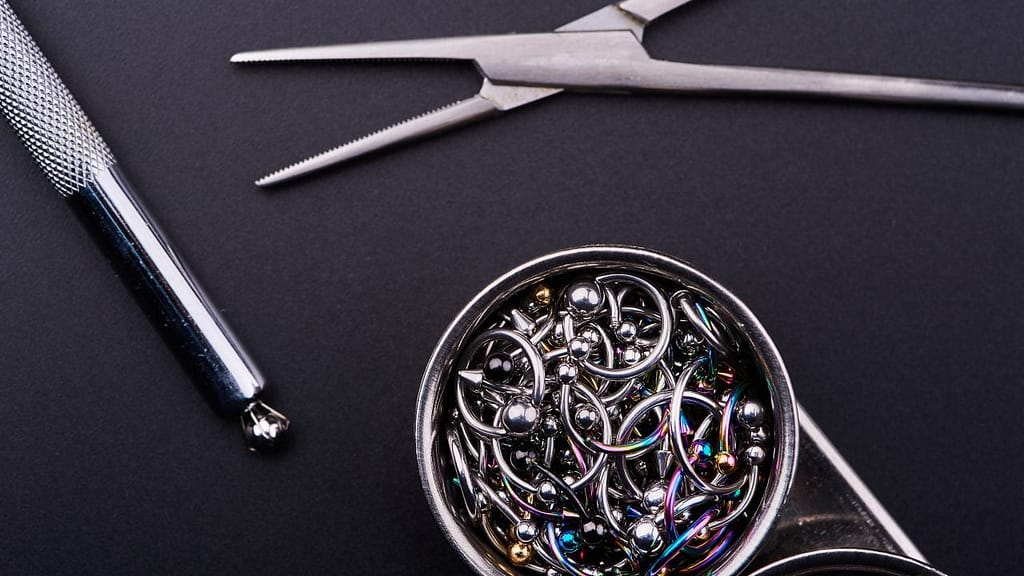Is Stainless Steel Hypoallergenic? An In-Depth Look
Is Stainless Steel Hypoallergenic? An In-Depth Look Is Stainless Steel Hypoallergenic? An In-Depth Look Stainless steel is a material of choice in various industries due to its strength, corrosion resistance, and aesthetic appeal. From kitchenware to medical instruments, its applications are endless. However, a common concern is whether stainless steel is hypoallergenic. This article delves into the properties of stainless steel to determine its suitability for those with sensitive skin. Understanding Allergies and Metals Allergies occur when the immune system reacts to a foreign substance, and metal allergies are no exception. Nickel, a common component in many alloys, is notorious for causing allergic reactions. These reactions can range from mild skin irritation to severe dermatitis. Understanding the nature of these reactions is crucial in assessing whether stainless steel is a safe option for sensitive individuals. Metals like nickel can leach out from alloys and come into contact with the skin, triggering an immune response in susceptible people. Composition of Stainless Steel Stainless steel is an alloy primarily composed of iron, chromium, and nickel, among other elements. The unique properties of stainless steel come from its composition and the precise mixture of these elements. Here are the two most commonly used types of stainless steel in products that might come into contact with skin: 304 Stainless Steel: This type contains approximately 18-20% chromium and 8-10.5% nickel. It is widely used due to its excellent corrosion resistance and formability. However, the relatively high nickel content can be problematic for individuals with nickel allergies, potentially causing skin irritation upon prolonged exposure. 316 Stainless Steel: Known for its superior corrosion resistance, especially in chloride environments, 316 stainless steel includes 16-18% chromium, 10-14% nickel, and 2-3% molybdenum. The addition of molybdenum not only enhances its resistance to chlorides but also helps to reduce the amount of nickel released, making it a more suitable option for those with nickel sensitivities. Understanding these differences is crucial when selecting stainless steel products, especially for applications that require prolonged skin contact, such as jewelry and medical devices. Is Stainless Steel Hypoallergenic? The hypoallergenic nature of stainless steel largely depends on its composition, particularly the presence and release rate of nickel. Nickel is one of the most common allergens found in many types of stainless steel. However, the amount of nickel released and its potential to cause an allergic reaction can vary significantly between different grades of stainless steel. 304 Stainless Steel: With a nickel content of around 8-10.5%, 304 stainless steel can cause allergic reactions in individuals who are sensitive to nickel. The likelihood of experiencing an allergic reaction increases with prolonged exposure, making it less suitable for those with known sensitivities. 316 Stainless Steel: Often referred to as surgical stainless steel, 316 contains 10-14% nickel but releases it at a lower rate due to the stabilizing effect of molybdenum. This lower release rate makes 316 stainless steel a better option for those with nickel allergies. Research and practical applications, such as its use in medical implants and body jewelry, support the hypoallergenic nature of 316L stainless steel, a low-carbon variant of 316. These properties make 316L stainless steel a preferred choice for hypoallergenic applications, significantly reducing the risk of allergic reactions compared to other grades of stainless steel. Choosing Stainless Steel Products For individuals with sensitive skin or nickel allergies, selecting the right type of stainless steel product is essential. Here are some tips to help you make an informed decision: Opt for 316L Stainless Steel: Known as surgical stainless steel, 316L stainless steel is highly recommended for hypoallergenic purposes due to its low nickel release rate. This makes it a suitable choice for jewelry, medical implants, and other products that come into direct contact with the skin. Look for Hypoallergenic Labels: When purchasing stainless steel products, check if they are labeled as hypoallergenic or nickel-free. These labels indicate that the products are designed to minimize the risk of allergic reactions. Consider Coated or Plated Jewelry: Some stainless steel jewelry is coated or plated with a hypoallergenic layer, such as rhodium or gold. This additional coating provides a barrier between the metal and your skin, further reducing the risk of irritation. Avoid Prolonged Exposure: Even hypoallergenic materials can cause reactions if worn continuously without removal. It’s advisable to remove jewelry periodically, especially during activities that cause sweating, to give your skin a break and prevent irritation. By following these guidelines, you can enjoy the benefits of stainless steel products while minimizing the risk of allergic reactions. Choosing the right type of stainless steel is key to ensuring comfort and safety, especially for those with sensitive skin. Conclusion In conclusion, while not all stainless steel is hypoallergenic, certain grades such as 316L stainless steel offer a safer alternative for individuals with nickel sensitivities. The key to selecting hypoallergenic stainless steel products lies in understanding the different grades and their compositions. For those with nickel allergies, 316L stainless steel, also known as surgical stainless steel, is an excellent choice due to its low nickel release rate. When selecting stainless steel products, especially those with prolonged skin contact, opt for hypoallergenic labels and consider coated or plated options for added protection. Explore GHT Steel range of stainless steel coils and sheets to find high-quality materials for your projects. Our products include 304 and 316L stainless steel, offering excellent durability and reduced allergenic potential. Visit our pages on 304 stainless steel coils and 316L stainless steel coils to discover more about our offerings and find the perfect match for your requirements. Facebook-f Twitter Linkedin-in

